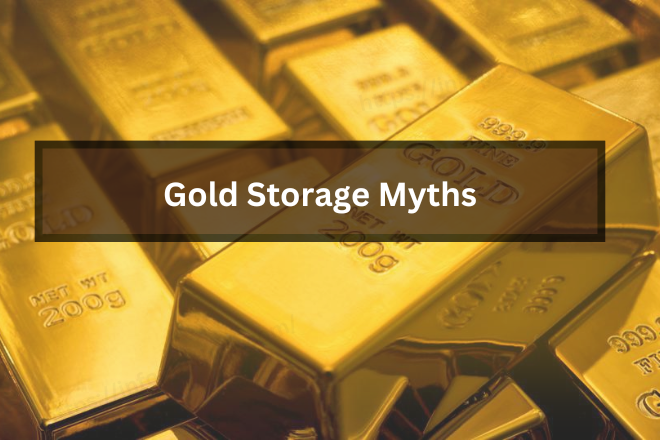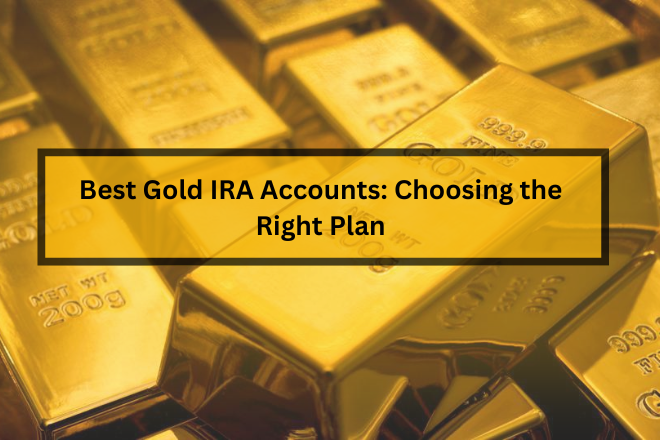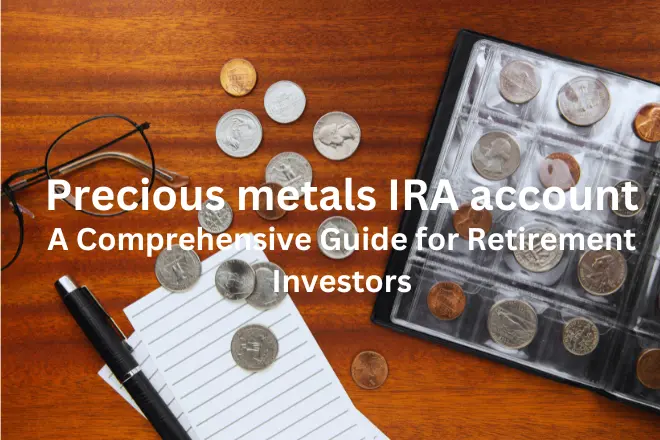Gold Storage Myths

When it comes to investing in gold, ensuring its safe and secure storage is one of the top concerns for most investors. However, there are many myths surrounding gold storage that can confuse or mislead people when deciding how and where to store their precious metals. In this article, we will debunk some of the most common gold storage myths and provide you with a clearer understanding of what is fact and what is fiction when it comes to keeping your gold safe.
Myth 1, Storing Gold at Home is Always Safe
One of the most widespread myths about gold storage is that keeping it at home is safe, convenient, and cost-effective. While it’s true that some people prefer to store their gold at home, doing so comes with significant risks.
Fact
Storing gold at home can be risky.
Many believe that if gold is kept in a safe at home, it will always be secure. However, home storage exposes your gold to the risk of theft, loss, or even damage in case of disasters like fires or floods. While a home safe may provide some level of protection, it is not foolproof. Burglars can target safes, and if they know you’re storing valuable items like gold, they may attempt to break into it.
Additionally, home insurance policies often don’t fully cover high-value items like gold unless you specifically add coverage for it, and even then, there are limits to how much you can claim.
Myth 2, Bank Safety Deposit Boxes Are the Best Option
Another common myth is that bank safety deposit boxes are the best and most secure option for storing gold. After all, banks are trusted institutions with secure facilities, right?
Fact
Bank safety deposit boxes come with limitations.
While bank safety deposit boxes are certainly more secure than home storage, they have some drawbacks. For one, banks are not liable for the contents of your safety deposit box. This means that if the bank is robbed or your box is damaged or lost, you may not be able to recover the full value of your gold unless you have separate insurance coverage.
Additionally, access to your gold is restricted to the bank’s hours of operation. If you need to retrieve your gold in an emergency and the bank is closed, you’re out of luck. In times of crisis, there’s also the possibility of government-imposed restrictions on safety deposit boxes, which could limit your access further.
Myth 3, All Vaults Are the Same
Many people believe that all professional vaults or depositories for storing gold are the same. As long as you store your gold in a vault, it should be safe, right?
Fact
Vaults differ in security, insurance, and access.
Not all vaults are created equal. There are significant differences in terms of security measures, insurance coverage, and ease of access. Some vaults provide full insurance for the value of the gold they store, while others might offer limited or no insurance, leaving you responsible for securing additional coverage.
Additionally, some vaults offer segregated storage (where your gold is stored separately from other customers’ holdings), while others provide commingled storage, where your gold is mixed with other investors’ metals. Segregated storage typically comes with higher fees but ensures that the exact bars or coins you deposit are the ones you’ll receive when you make a withdrawal.
It’s important to research the specific vault you plan to use and ensure that it meets your security and insurance requirements.
Myth 4, Gold Storage Fees Are Too Expensive
A common misconception is that professional gold storage fees are prohibitively expensive, making it unaffordable for average investors. Some people assume that the costs of storing gold in a secure vault will eat into their investment returns.
Fact
Gold storage fees are affordable and vary by provider.
While gold storage does come with fees, they are typically reasonable, especially when considering the security and peace of mind they provide. Fees can vary depending on the provider and the type of storage you choose (segregated or commingled). In most cases, storage fees range from 0.5% to 1% of the value of your gold per year.
For example, if you store $50,000 worth of gold in a professional vault, your annual storage fee could be as low as $250 to $500, which is a small price to pay for the security and insurance provided by a professional facility. For most investors, these fees are manageable and well worth the cost to protect their valuable assets.
Myth 5, You Can’t Access Your Gold Quickly in a Professional Vault
Some investors worry that if they store their gold in a professional vault, they won’t be able to access it quickly when needed. They assume that retrieving gold from a vault is a complicated and time-consuming process.
Fact
Access to your gold depends on the vault’s policies.
Many professional gold storage providers offer quick and easy access to your gold when you need it. While it’s true that you may need to follow certain protocols (such as providing identification or giving notice), most reputable vaults allow you to retrieve your gold within a matter of hours or days, depending on their policies.
If immediate access is a concern, be sure to inquire about the vault’s withdrawal procedures before committing to their services. Some providers even offer the option to deliver your gold to your doorstep or transfer it to another location of your choice, making it convenient to access when necessary.
Myth 6, Gold Stored in a Vault Isn’t Insured
Another myth is that if you store your gold in a vault, it won’t be insured, and you’ll be at risk of losing your investment in case of theft or damage.
Fact
Most reputable vaults provide full insurance coverage.
The reality is that most professional vaults offer insurance coverage for the gold they store. This insurance typically covers the full value of your gold in the event of theft, damage, or loss. However, the level of coverage may vary depending on the vault, so it’s important to confirm the details of the insurance policy before choosing a storage provider.
For added peace of mind, some investors choose to purchase additional insurance through a third party, especially if they have large amounts of gold or specific concerns about the vault’s insurance coverage.
Myth 7, Gold Coins Are Easier to Store Than Gold Bars
Many people believe that storing gold coins is easier and more convenient than storing gold bars due to their smaller size.
Fact
Both gold coins and bars can be stored securely.
While it’s true that gold coins are smaller and may seem easier to store, both coins and bars can be securely stored in a professional vault. The key difference is in the volume of gold you’re storing. If you’re holding a large quantity of gold, bars can be more space-efficient, while coins offer greater flexibility for smaller transactions.
Ultimately, the decision between storing gold coins or bars comes down to your personal preferences and investment strategy. Both options can be safely stored in a professional vault, with the same level of security and insurance coverage.
FAQs
Is it safe to store gold at home?
Storing gold at home can be risky due to theft, loss, or damage. A professional vault offers higher security and insurance.
Are professional vaults expensive to use?
Professional gold storage fees are generally affordable, typically ranging from 0.5% to 1% of the value of your gold annually.
Can I access my gold quickly if it’s in a vault?
Yes, most professional vaults allow you to access your gold quickly, often within hours or days, depending on their policies.
Is gold stored in a vault insured?
Most reputable vaults offer full insurance coverage for the gold they store, protecting your investment from theft, damage, or loss.
Are gold coins easier to store than gold bars?
Both gold coins and bars can be securely stored in a vault. Coins may offer more flexibility for small transactions, while bars are more space-efficient for larger holdings.
Conclusion
There are many myths surrounding gold storage that can lead to confusion or poor decision-making when it comes to safeguarding your precious metals. Whether you’re considering storing gold at home, in a bank safety deposit box, or in a professional vault, it’s essential to understand the facts and weigh the pros and cons of each option.
Ultimately, professional vault storage is often the safest and most reliable choice for serious gold investors. By debunking these common myths, you can make more informed decisions about where and how to store your gold, ensuring its long-term security and protection.






